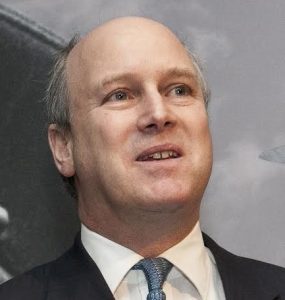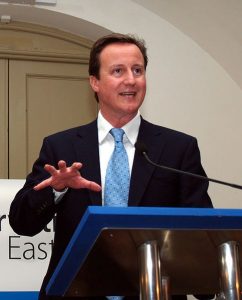
Finest Hour 167
Churchill’s Legacy In 2015

Winston Churchill, Parliament Square, London © Sue Lowry & Magellan PR
August 2, 2015
Finest Hour 167, Special Issue 2015
Page 11
By Warren Dockter
Winston Churchill is one of the most important leaders of the twentieth century. His legacy looms large in the British national psyche and commands reverence from all quarters of the globe. The fiftieth anniversary of his state funeral offers the world a chance to commemorate his memory and celebrate his life.
In fact, this year sees a number of significant anniversaries linked to Churchill, including the sixtieth anniversary of his retirement as prime minister in 1955 and the seventieth anniversary of when he stood as an architect of victory over Nazism, followed by his defeat in the General Election. This year also marks the seventy-fifith anniversary of Churchill becoming prime minister and facing down the Blitz in the skies over London. It has been eighty years since the passage of the Government of India Act, which saw the defeat of Churchill’s antiquated and misplaced campaign to deny home rule to South Asia. Ninety years ago saw Churchill’s still controversial decision, as Chancellor of the Exchequer, to return Britain to the gold standard. And, finally, this year marks the hundredth anniversary of Churchill’s unsuccessful but daring campaign to force the Dardanelles Straits during the First World War.
Given Churchill’s lengthy political career, it is no surprise that 2015 will also feature much debate on his legacy. Major historical figures often have positive and negative effects that reverberate through history. In Churchill’s case, these effects can at times appear paradoxical. Some of the contradictions in Churchill’s legacy, like his absolute belief in liberty and his steadfast imperialism, might be explained by his long career of public service. His deeply rooted belief in the virtues of imperialism (perhaps unsurprising for a man born in the Victorian Age) became anachronistic in the context of the post-war world. Of course, this mirrors the legacy of British imperialism altogether, to which Churchill’s own is inexorably linked.

2024 International Churchill Conference
During the ceremonies this year on 30 January, the BBC invited me to come to HMS Belfast, from where they were broadcasting the Havengore making its way up the Thames. I was asked to offer my thoughts on Churchill’s legacy as a Churchill scholar and as an American. I explained that I thought his legacy was complex, blessed with moments of acute insight and knowledge but equally littered with moments of bad judgment and failure. Yet, ultimately, despite his failings, the world is a much better place for him having played a part in shaping its destiny. I concluded with the reflections which President Eisenhower offered fifty years before, words which I think accurately portray Churchill:
“Among the things so written or spoken [of him] there will ring out through all the centuries one incontestable refrain: Here was a champion of freedom.”
Professor Dockter teaches history at Cambridge University. He is the author of Churchill and the Islamic World.
Subscribe
WANT MORE?
Get the Churchill Bulletin delivered to your inbox once a month.




